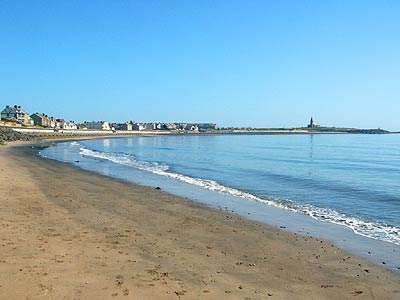James Alan Thompson. World War 2. Earliest recollections circa 1941
My earliest recollections of WW2 are the blast of the sirens which would raise the alarm across the town. The noise was unmissable-an air raid warning-the German bombers were coming. My Dad would pick me up from my bed by the light of a small oil lamp. He would clutch me to his chest. My Mother would uplift my baby Brother and hold him close in a blanket then my Mum and Dad would run through the dark streets in the cold night air to the home of my Dad’s Brother, Uncle Bill, who had built an air-raid shelter beneath the front room of his house.
There were two bunk beds in the cellar which was very small so we would all sit huddled together in the candlelight until the siren went off again to signal the ‘ALL CLEAR’ which meant the raid by the German bombers was over. Despite being only four and a half or five years old I think I remember this so well because the fear felt by everyone was so intense.
Throughout the WW2, the whole country was in “Blackout” at night which meant that no light from inside buildings was allowed and there were severe penalties for people who, for instance, left their curtains open when there was a light on or who opened a door without switching the lights off first. After dusk, the whole of the United Kingdom was in darkness. There were no street lights and all road vehicles had shades over their lamps to deflect the light onto the road.
Each day throughout WW2, families all over the country huddled around the radio (the wireless as it was called then) to hear the latest news; I can still remember the newsreader’s voice “this is the BBC Home Service here is the six O’clock news read by Alvar Liddell”.
At the beginning of the war the news was always grim as the Germans, the Nazi’s, conquered country after country. By June 1940 the Germans had conquered all of Europe and the British stood alone. Our brave soldiers who had resisted the German advance in Europe had to be rescued from France and miraculously every seaworthy vessel from leisure craft to fishing boats to Royal Navy destroyers crossed the English Channel to assist in the evacuation. Some boats rescued six or seven whilst bigger vessels rescued hundreds and almost 350,000 British, French and Belgian soldiers were saved.
The evacuation was known as the “Miracle of Dunkirk” and it set the tone for the war – if the Germans invaded Great Britain, the British would be ready and the British would not be defeated.
Author: James Alan Thompson


